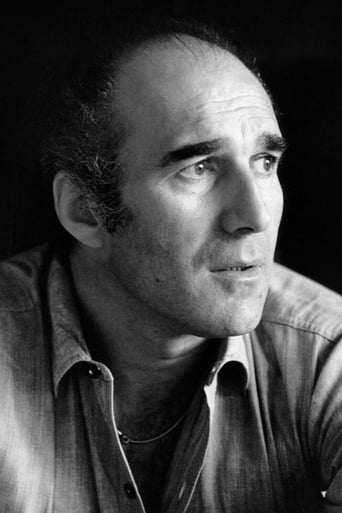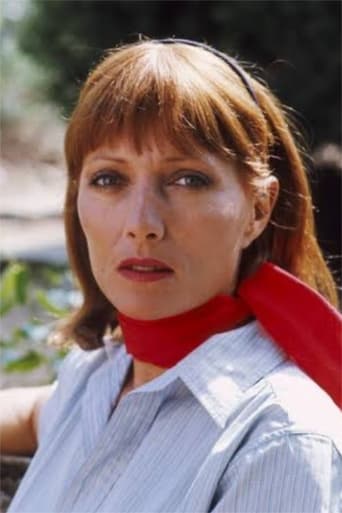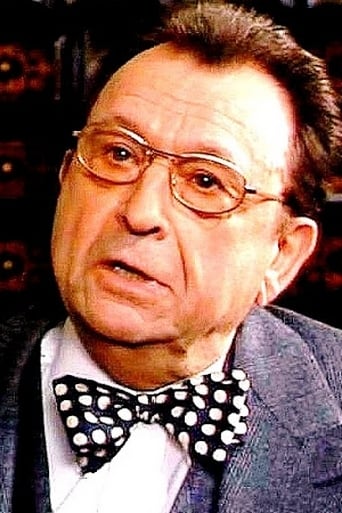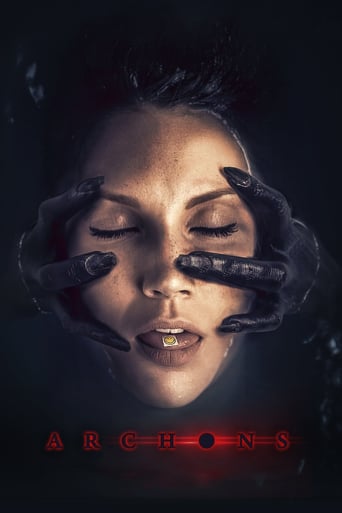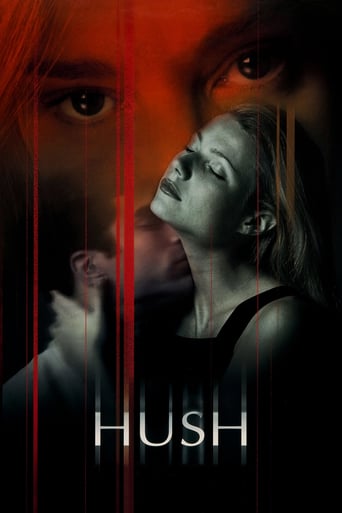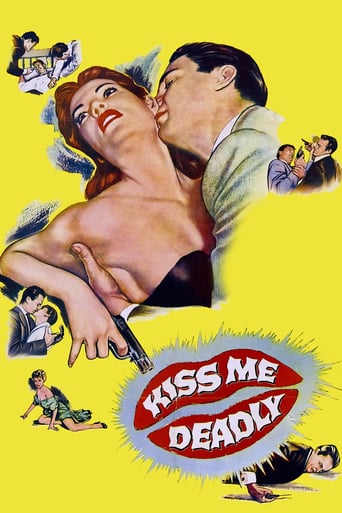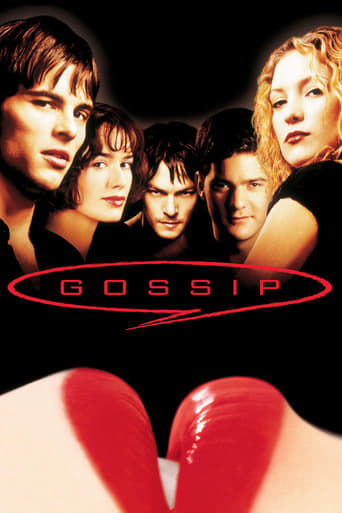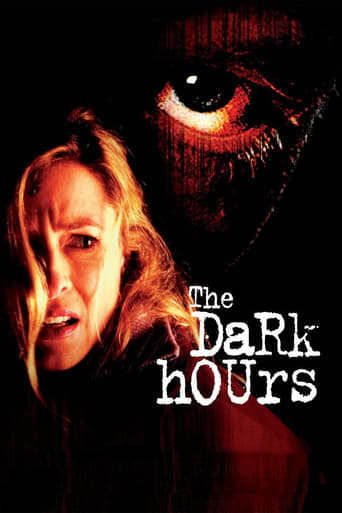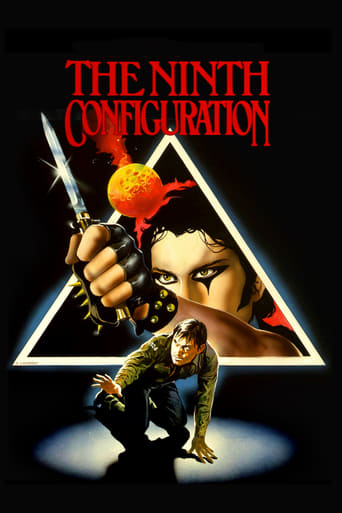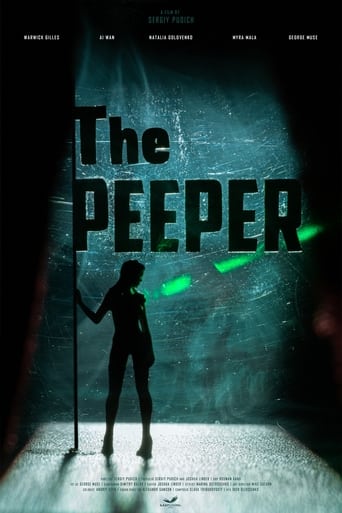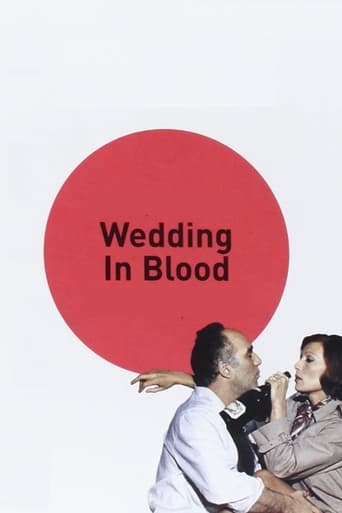
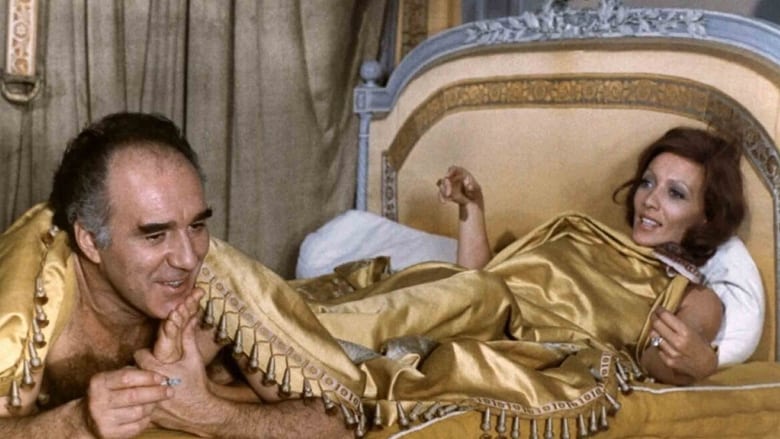
Wedding in Blood (1973)
Lucienne Delamare and Pierre Maury are having an affair. Lucienne's husband Paul is the mayor, and a French deputy. Pierre's wife Clotilde has been weak and sickly for years. Lucienne's husband holds no excitement for her, and he is always away in Paris on business. Pierre is now the vice-mayor, thanks to Paul. Lucienne and Pierre have a secret meeting spot by a lake along a country lane. Pierre's wife dies suddenly, by suicide the town gossips believe. Pierre confesses otherwise to Lucienne. Paul proposes a shady land deal which will "benefit the town", and wants Pierre's political support and collusion. Then Paul discovers proof of his wife's affair...
Watch Trailer
Cast


Similar titles
Reviews
Les Noces Rouges is about two married people who are having an affair behind their partner's backs. In both cases they are in sexless marriages. The man's wife is suffering from mental illness and is close to catatonic, while the woman's husband is impotent and never there. This leads them to the idea of murder Like a few other Claude Chabrol films, this one is about murder without actually ever really being a thriller. It's the psychological consequences of killing and complex male/female relationships that are the focus. Once again, the highlight of the film is the performance of Stephane Audran. This incredibly sensual French actress is something of a revelation in my book. Both an outstanding beauty and a highly accomplished actress, Audran has a real screen presence and charisma in everything I have seen her in. In this one she is ably complemented too by Michel Piccoli in the role of her partner in crime. While Chabrol himself keeps the film looking nice with his usual pastel colour scheme very much in evidence.Another feature of Chabrol's work that this one displays is a tendency for its characters to easily forgive and forget the sexual-betrayal of their partners. The reasons may differ depending on the film but it is an unusual regular feature of his work. It's never exactly believable and does give his films a sense of detachment, which is very much in keeping with how he portrays all of his characters; they are always at arms length and are never the warmest people. In Les Noces Rouges this does lead to a problem of sorts, as it's quite hard knowing who to sympathize with. I guess we are supposed to empathize with the central couple but considering they murder their respective partners for essentially selfish reasons, they're not the easiest people to get on-side with. But ultimately, these types of moral ambiguities and complications are one of the things what make Chabrol's films interesting and unpredictable.
I was very surprised upon reading some of the comments for this film after having seen it - not only is this not a lesser Chabrol movie or a non-entertaining one, for my money its Chabrol at his subtle and intriguing best, and no doubt up there with the likes of The Unfaithful Wife and Le Boucher! The plot is not particularly original, but it's not too important as it's Chabrol's style and attention to detail that really makes the film what it is anyway. The plot seems to take a lot of influence from the classic 'The Postman Always Rings Twice' and focuses on murder due to an illicit love affair. Lucienne Delamare is not so happily married to town major Paul Delamare and, unbeknown to her husband, is currently engaged in an affair with her husband's assistant Pierre Maury. The two are able to spend time together because Paul is often away on business. Pierre's wife Clotilde is weak and sick and when she dies suddenly, the town suspect suicide; but the truth is more sinister, as revealed by Pierre's confession to Lucienne...The film is kept interesting as Chabrol always focuses on the important elements and ensures that the chemistry between the leads is always engaging. The acting is once again superb with Chabrol's beautiful wife (at the time) Stéphane Audran being suitably brooding and mysterious in the lead role and receiving excellent support from Michel Piccoli and Claude Piéplu. The village in which the film takes place is also well thought out and Chabrol manages to create a foreboding atmosphere stemming from that. As usual with Chabrol films, this one is beautifully shot and realised and it's clear that the director put a lot of care and attention into the film. As usual, the suspense is generated through intrigue and the way that the characters are developed rather than through scenes of tension, though there are some brilliant sequences in the film - a pivotal scene towards the end involving a car accident being particularly noteworthy. I wouldn't recommend this film as a starting point for someone who has not previously seen a Claude Chabrol film, but I'd be surprised if fans of his don't enjoy it. Highly recommended!
By no means one of Chabrol's finest this is nevertheless most watchable and the most agreeable and sinister soundtrack always suggests this may become something much grander. As it is it is a fairly predictable tale with the odd twist but leaves the two leads/lovers ending up looking rather stupid. I'm sure Mr Chabrol, like his mentor, Hitchcock found himself a little less than at ease with the ladies. Hence his wife Stephane Audran and Michel Piccoli, two great actors, but who it has to be said, are both so seemingly lacking in passion, are asked to convince that they would gladly rush to a riverbank or rooms within a stately home to make wild, passionate love. I don't think so! Claude Pieplu is great fun as the at first pompous and later calculating cuckold husband and although we are assured he is not 'up to the job' he seems to have far more fire in him than the other two. Certainly worth watching this is a curious example of the director's work and just goes to show that, again like Hitchcock, even his lesser films are at least interesting, if a little awkward.
The films of Claude Chabrol are probably most famous for their artifice, their heightened use of colour, stylised plots and action, elaborate, distancing camerawork, intrusive decor and music, especially their turning domestic melodrama into murder mysteries. But Chabrol first made his name with LE BEAU SERGE, a scrupulously naturalistic rural drama, and mined this vein throughout his career, co-existing in compelling tension with the artifice.LES NOCES ROUGES is on one level Chabrol's most accessible film, with a straightforward plot and realistic filming. The thriller elements are for the most part sublimated, and instead we have a moving tale of adultery and political skullduggery in provincial France. Michel Piccoli is Pierre Maury, deputy vice-mayor, whose wife is permenantly incapacitated by asthma. In the extraordinary opening sequence, his unreciprocated loving gesture to his wife seems like a strangling; as she mopes off to bed, he, in real time, walks through the street, to his car, drives into the forest and there meets a beautiful red-head, Lucienne Delamare, wife of the mayor. They make love on the river bank.It is here the film becomes formally interesting, and questions its very picturesque realism. Like a relay-race, we follow Lucienne now, driving in her car home. There is an edit in her journey though, and because the symmetry doesn't add up, we ask what's missing. When she arrives home it's night, making us wonder how far she lives from the forest, or what she's been doing in the meantime.After dinner with her husband and daughter by another man, she goes to bed, and thinks/dreams about how she and Paul met, how he became a political partner of her husband, how they made love anywhere and everywhere like teenagers on heat - this is the slyly funny film's most comic section, as they sneak into the local chateau, or are nearly caught fornicating behind a bush.The thing is, Lucienne's going into dream/thought mode is signalled by a conventional fading, and by the outside noises of a local celebration. Not only does she visualise things she cannot know - Paul's glum dinner with his wife, for example - but the sequence breaks off not with her, but Pierre, when the image fades 'back', and the outside noise intrudes. What's going on here? How do we reconcile these formal breaches within the film's surface realism?Is it enough to suggest that the film's 'narrative' is actually the projection of Lucienne's desires? Why does Paul come out of Lucienne's dream? Chabrol was one of the first to take Hitchcock's artistry seriously - do the REAR WINDOW-like similarity of initials link Paul and Pierre closer than they seem?This seeming fantasy serves at least two purposes. Firstly it shows that a bond that transcends social rules and probable social ostracism is not all that real - the scene in the chateau, beginning in excitable joy, role play and daring, ending in alienation and disillusion, hinted as much. Alternatively, this realm of fantasy, escape, transcendence, can be seen as a riposte to the very real world of corrupt politics and paralysing marriages. What seemed a rather old-hat investigation into bourgeois transgression becomes something far richer, a psychological dramatisation of a woman's desires.But Chabrol is an ironist, and he would never go too far with any one character. We might regard, for example, the husband and daughter as marginal figures in the main love story if they weren't called Paul and Helene, and therefore linked to Chabrol's other 70s films of love triangles featuring these characters. We expect some kind of intrusion from these, and we do, powerfully so. Indeed, Helen's effacing observing becomes almost supernatural as it comes to wreak passive havoc, as do her constant paralleling with paintings. The Hitchcockian use of a church (and the VERTIGOesque music) also suggest a spiritual dimension seemingly minimal, but possibly devastating.Whatever. This is a Chabrol masterpiece. His recreation of provincial France is beautiful, but always corresponds to emotional states. The acting is extraordinary. Piccoli is one of the great actors, and his burly-eyed charm, decency and humour suggest a man ready to murder, whose embraces are like frenzied maulings, whose civility is undermined by his slurping of soup.Claude Pieplu as the husband is a wonderful comic character who initially suggests a repellent but laughable Charles Bovary (who was once called a monster because he snored on his wedding night), and becomes something much more dangerous. The representation of politics in the film got it banned, and it does reveal corruption in very high places, but Chabrol seems more interested in its dehumanising processes contrasted with the redemption of imaginative power. What is most disturbing about Paul is that we think it perfectly reasonable he be killed.Stephane Audran, Chabrol's wife, is a revelation, though. Normally icily elegant, she is enrapturing here as a woman in love, unafraid to be vulgarly happy, the sense of freedom allowing her to - horrors - smile, laugh, even lounge on chairs.


